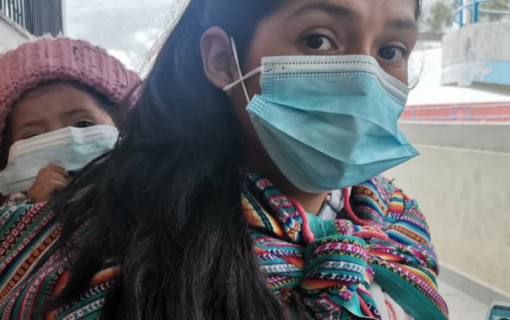Civil Identification Project for Peru Feasibility Study
EXECUTIVE
1. SUMMARY INTRODUCTION
1.1 The International Foundation for Election Systems (IFES) is a non-partisan, non-profit organization providing technical assistance to electoral officials and government ministers responsible for national registers and elections. Established in 1987, IFES has worked in more than 90 countries and currently has 122 employees in 19 regional offices in Europe, Asia, Africa and Latin America IFES has been active in Peru under USAID contracts since 1992, and established an office in Lima in 1994 in order to provide on-site technical assistance to the electoral authorities and the National Registry of Identification and Civil Status (IDENTIDAD). This study represents a continuation of the support which IFES has been providing to IDENTIDAD in its important task of issuing reliable and secure identification documents to Peruvian citizens in order that they may, among other important activities, participate in the electoral processes of the country.
1.2 This feasibility study of the Civil Identification Project in Peru, hereinafter called the Project, was developed in accordance with a technical cooperation agreement issued to IDENTIDAD by the U.S. Trade and Development Agency (IDA). The study consists of five documents which cover various aspects of the Civil Identification Project in Peru and the issuance of a new National Identification Document (DNI).
1.3 The first document presents an Analysis of Financial Alternatives, intended to demonstrate the feasibility of financing the Project, with or without the support of international donors such as the Inter-American Development Bank (IDB). It is important to note that a loan from the IDB, for example, would allow a one-time free distribution of the DNI to all adults, including those who might otherwise be unable or unwilling to pay a fee for the new ID card, which would considerably increase the social benefit of the project and allow a substantial improvement in the quality of life in the country to be achieved in the short term, given the fact that the new document would safeguard citizens' rights and contribute to the climate of trust regarding the identity of persons.
1.4 The second document is the Technical Feasibility Study, which includes the technical details of the Identification System, the Collection of Data and Images, the Data Base, the National Identification Document, the Communications System and the safeguards for any contingencies.
1.5 The third document presents a Social Impact Analysis of the Project. This analysis demonstrates that a new identification document would be of great value to the various social groups in Peru, and in fact is a necessity for the development of democracy and a market economy. This document includes specific recommendations and considerations to achieve the issuance of the DNI to marginal populations.
1.6 The fourth document is an analysis of the environmental impact which the production and the distribution of the new DNI may have.
1.7 The fifth document covers the legal aspects related to the project and constitutes a guide to legislation in force in Peru, relating to the process for issuing the DNI and exchanging the existing Voting Booklet for the new DNI, the contracting of suppliers for issuing the DNI, and the financing options for the project.
Read the Full Report.









